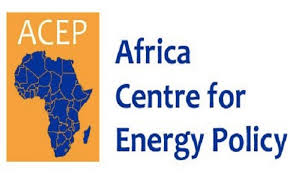Special topics
 The African Centre for Energy Policy, ACEP, is calling on government to prepare a supplementary budget that will help manage the effects of low oil prices on the market.
The African Centre for Energy Policy, ACEP, is calling on government to prepare a supplementary budget that will help manage the effects of low oil prices on the market.
According to ACEP, the impact of revenue shortfalls from the oil and gas sector due to price volatility on the international market, has severe implications for the budget particularly physical infrastructure and debt servicing as in the 2020 budget, Ghana’s infrastructure development programme is heavily dependent on oil revenues.
Global crude oil price has plunged in recent times, threatening the cash flow of oil companies and revenue of governments.
Earlier this month, oil prices saw its lowest drop after a price war between Saudi Arabia and Russia, with Russia slashing its selling prices and pledging to unleash its pent-up supply onto a market reeling from falling demand because of the coronavirus outbreak.
Brent Crude oil price has also declined dramatically from $66.25 to $26 per barrel between 2nd January 2020 and 21st March 2020. This fall in oil price has affected global economic growth and demand for oil, thus creating excess oil supply.
A statement signed by Executive Director of ACEP, Benjamin Boakye, urged government to create “A new budget that accounts for the extraordinary drop in oil prices is required for oil producing countries in Africa. This also recognizes that a mid-term budget will be too late for many countries to accommodate the full effect of oil price drop and the impacts of COVID-19 outbreak on the national budget.”
Among other demands, ACEP is also asking government to “ensure the transmission of the lower oil price to support industry and consumers of petroleum products.”
They explain that the impact of the COVID-19 outbreak could be harsh for emerging SMEs and industries that are struggling to compete in the global space, and increased unemployment as a result of layoffs on the back the pandemic is possible to occur, thus the need for the call.
“In a low oil price era, the temptation for many countries could be to increase taxes on downstream consumption to offset the revenue losses upstream. This will be injurious to many businesses in Africa, particularly in the face of inadequate incentives and stimuluses compared to the developed countries. A full transmission of the lower price of oil is therefore required for businesses and consumers in general to boost economic activity. This minimizes production and service delivery costs to reduce the burden on consumers,” the statement added.
ACEP further urged government to have stabilization funds with adequate buffer that is capable of smoothing significant shortfalls in the budget.
“Also, hedging portions of oil outputs will minimize the impacts of oil price volatility on national budgets.”
Earlier this year, ACEP proposed to government to secure at least a 40 percent projected revenue in the Stabilization Fund in order to avoid the impact of revenue shortfalls from the oil and gas sector.
Executive Director of ACEP, Benjamin Boakye, explained that oil prices are bound to suffer from some volatility, so it will be in government’s interest to secure a constant 40 percent projected revenue in the Stabilization Fund to mitigate the effects.
“Our recommendation has been that at least we should have about forty percent of the projected revenue in the stabilization account. That should be enough to offset any instability in the international market” he said.